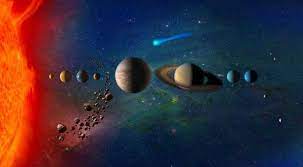Our Solar System may collapse if a passing star came too close
Categories: SCIENCE NEWS US NEWS

Our Solar System may collapse if a passing star came too close
Most of us think of our solar system as a nice cozy cocoon inside which the planets are safely embedded and we are doing what we do on Earth in complete safety. Little is known about the fact that the Solar System is spinning at a tremendous speed around the center of the Milky Way and that other celestial bodies are very much present around the Solar System. Thus another star could be blown away by the solar system.
And if it does so even though it's a little too close to rest, it could result in the collapse of the Solar System. A passing star can exert its own gravitational pull on planets in the Solar System and alter their orbits, thus sending them to collide with each other. Two researchers from the University of Toronto, Garrett Brown and Hanno Rein, have studied this possibility.
They have found that the gravity of alien stars shrinks the orbits of some planets by as much as 0.1 percent, which can wreak havoc. The study found that the 23 billion-mile distance between the Sun and another star can make things a little uncomfortable.
This may seem like a huge distance but just to put it in perspective, Proxima Centauri, the closest star to our silor system, is 24.8 trillion miles away. So 23 billion miles is far less than a distance. Fortunately, the destruction of the Solar System, if it happens, may not happen immediately. This process can take billions of years.